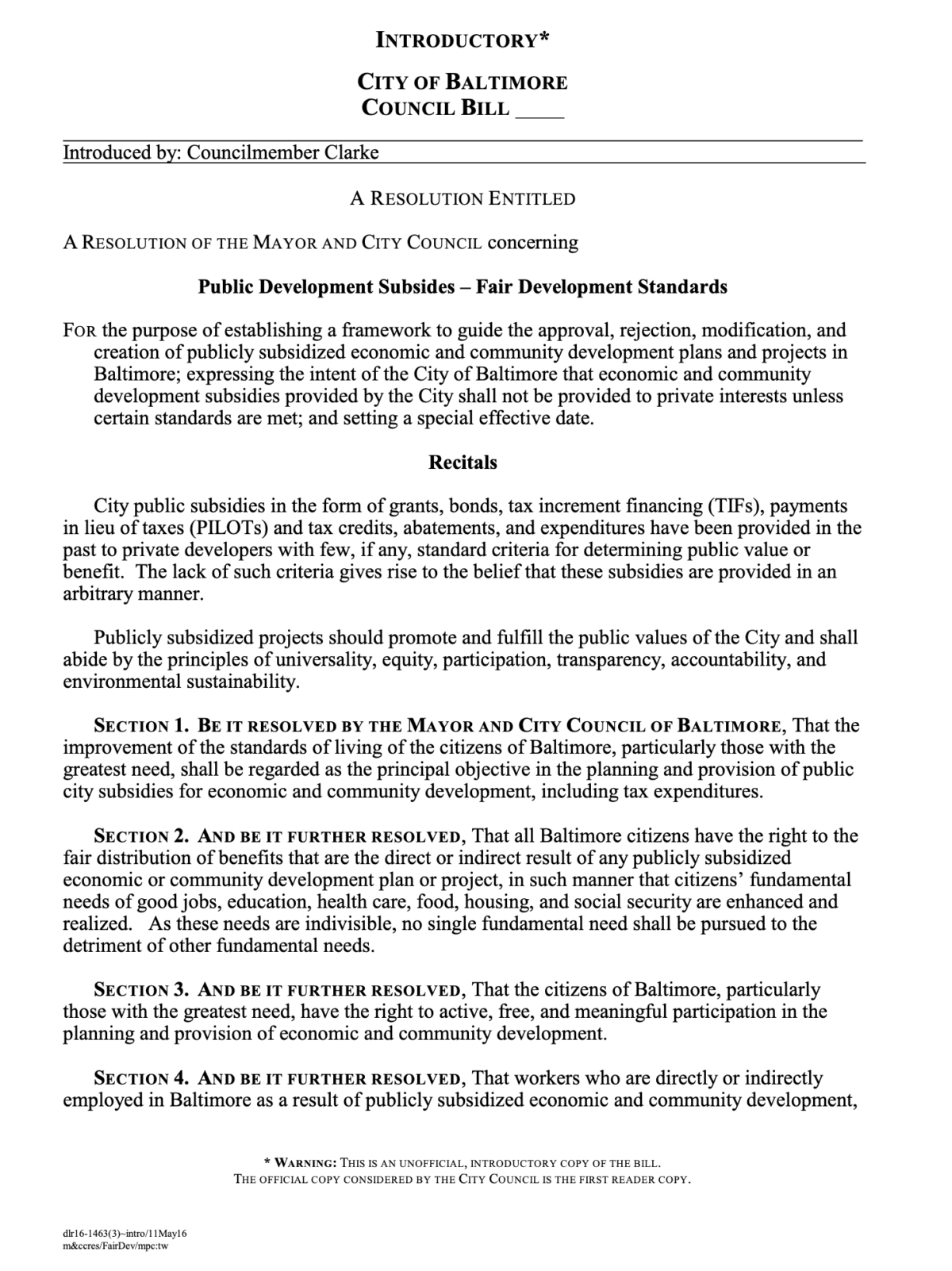Baltimore City Council to Consider Fair Development Standards in Public Development Subsidies

As the second trial of six Baltimore City police officers charged for the April 2015 killing of Freddie Gray ends without a conviction, some city officials are making efforts to address the structural racism and inequality that has left neighborhoods of color void of private capital and public investment.
Councilwoman Mary Pat Clarke has introduced Public Development Subsidies – Fair Development Standards, a Mayor and City Council Resolution that would become binding law that sets a value-based framework for publicly subsidized Baltimore City development projects. The resolution adopts the guiding principles of universality, equity, participation, transparency, environmental sustainability, and accountability.
Baltimore City has labored under an economic development model for the last 40 years that has been focused on providing public capital to private developers in the hopes that wealth will “trickle down” to workers and neighborhoods. The legislation moves the focus away from the needs of developers, indicating instead that the principal objective in the provision of public economic development subsidies is the “improvement of the standards of living of the citizens of Baltimore, particularly those with the greatest need.” It also states the Baltimore residents have the right to the “fair distribution” of development benefits, in a manner meeting their fundamental needs for good jobs, education, health care, food, housing and social security.
Under the legislation, the City Council has a duty to set enforceable performance standards and duties upon private actors who receive public economic or community development subsidies in accordance with the following rights:
- Fair and living wages, health care benefits, and opportunities for skill enhancement, the right to organize collectively without interference;
- Protection from the risk of involuntary displacement;
- Racial and ethnic inclusion;
- Clean air, water, and projects free of harmful toxins;
- Environmental sustainability;
- Transparency in the discussion, planning, implementation, and monitoring of projects.
The legislation, drafted by NESRI in conjunction with United Workers as part of the Fair Development Campaign, has been be referred for hearing to the City Council’s Taxation, Finance, and Economic Development Committee, chaired by Councilman Carl Stokes.
